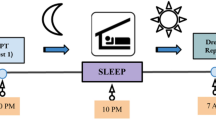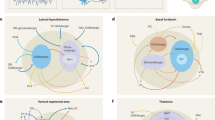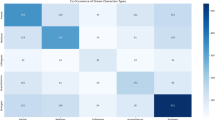Abstract
RECENT experiments1 have led to a renewed interest in the very long-standing problem of dreams. With perhaps the single exception of the contribution of the nineteenth-century psychoanalysts, dream theories have been based on negligible experimental evidence and have never been sufficiently rigorous or explicit to attract serious scientific interest. The work of Dement, however, demonstrates what appears to be a convincing behavioural measure of dream periods and, though criticized on several counts, has had an undoubted effect from the point of view of stimulating further experimental investigations and theoretical considerations. We have ourselves recently proposed elsewhere2 that the dream process might be likened in function to the systematic programme clearance which is absolutely necessary where computer programmes are being continuously evolved to meet changing circumstances. The greater the change in circumstances being programmed for, the greater must be the amount of programme evolution and the more urgent the programme clear-out. In our view, the primary function of sleep is probably to allow such a clearing process to get under way without interference from external information; ‘dreams’ occur when the level of consciousness shifts for one reason or another and the clearing process is interrupted. Prolonged deprivation of the opportunity to dream would inevitably produce a breakdown in human efficiency, most probably in the region where novel situations must be handled. More recently yet, Kales et al.3 have attempted an experimental reappraisal of Dement's original findings; but, while depriving subjects of the opportunity to dream for a number of nights, they did not notice any significant deterioration in their performance in certain psychometric investigations. In substance they agree that dream-prevention leads to increased attempts on the part of subjects to dream, but noted no ‘psychic changes’ as the result of this deprivation. However, the apparent discrepancy between the results of Kales and those of Dement is not, we believe, serious for present theoretical interpretations of the dream-deprivation investigations, for a number of reasons which we shall consider here.
This is a preview of subscription content, access via your institution
Access options
Subscribe to this journal
Receive 51 print issues and online access
$199.00 per year
only $3.90 per issue
Buy this article
- Purchase on SpringerLink
- Instant access to the full article PDF.
USD 39.95
Prices may be subject to local taxes which are calculated during checkout
Similar content being viewed by others
References
Dement, W., Science, 131, 1705 (1960).
Evans, C. R., and Newman, E. A., New Sci., 24, 577 (1964).
Kales, A., Hoedemaker, F. S., Jacobson, A., and Lichtenstein, E. L., Nature, 204, 1337 (1964).
Lilly, J. C. (personal communication).
Author information
Authors and Affiliations
Rights and permissions
About this article
Cite this article
NEWMAN, E., EVANS, C. Human Dream Processes as Analogous to Computer Programme Clearance. Nature 206, 534 (1965). https://doi.org/10.1038/206534a0
Issue date:
DOI: https://doi.org/10.1038/206534a0
This article is cited by
-
REM sleep selectively prunes and maintains new synapses in development and learning
Nature Neuroscience (2017)
-
Changes in sleep patterns during prolonged stays in Antarctica
International Journal of Biometeorology (2008)
-
Estimation of the dimensionality of sleep-EEG data in schizophrenics
European Archives of Psychiatry and Clinical Neuroscience (1993)
-
The function of dream sleep
Nature (1983)
-
Learning capacities during sleep: A preliminary study in a group of schizophrenic inpatients
The Pavlovian Journal of Biological Science (1978)



